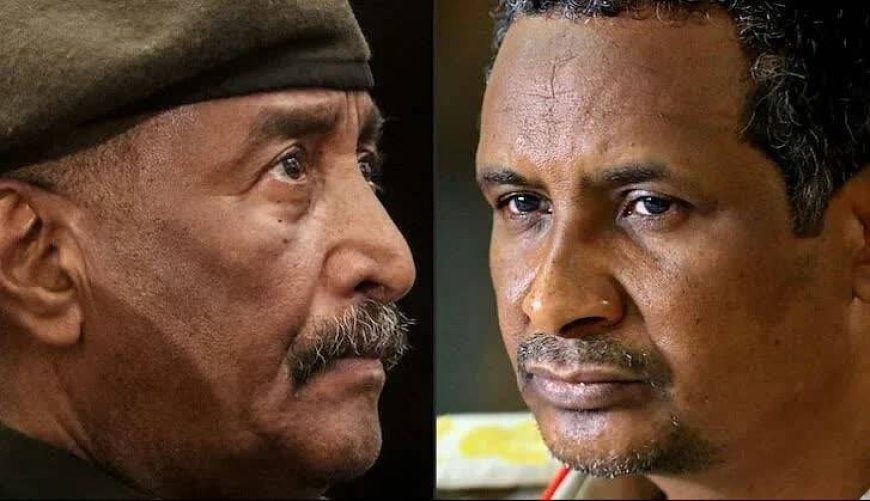Crisis in Sudan: Al-Burhan and Hemedti, the duelling generals of Khartoum
Crisis in Sudan: Al-Burhan and Hemedti, the duelling generals of Khartoum

By: S. Gol-Anbari
Sudan’s Rapid Support Forces [RSF] Commander General Mohamed Hamdan Dagalo, also known as Hemedti, has been at odds with Sudan's army commander, General Abdel Fattah al-Burhan, Sudan's de facto ruler, for some time.
Al-Burhan and Hemedt, who had worked together for years and remained on good terms, actually led the coup d'état that overthrew Omar al-Bashir in April 2019. However, since 2021, when both generals started to fear that the other might assume complete control of the military, tensions have grown. When this latent hostility surfaced, an armed confrontation and street battle looked inevitable.
By May 2021, however, hostilities had subsided, and the two sides had reconciled with the assistance of Abdalla Hamdok, the country's civilian prime minister at the time. Later, al-Burhan dragged Hemedti into a political game, and with the promise of power sharing—a duumvirate—they jointly staged the October 2021 coup, leaving their civil partner, the Freedom and Change Coalition, out of the picture. But the failure of the coup d'état against the civilian politicians is what ultimately caused Hemedti to dissociate himself from al-Burhan when massive demonstrations swept Sudan and the sociopolitical troubles in the African nation deteriorated. Indignant protesters were on the streets every week, as at least 212 people have been killed during the ongoing unrest. Hemedti gradually supported the transitional constitution that the Sudanese Bar Association had drafted while opposing al-Burhan and the Sudanese army.
Finally, al-Burhan caved to pressure from Hemedti and the civilian forces in December, when they signed a deal with the Freedom and Change Coalition. In the meantime, in his conflict with Hemedti, al-Burhan played the card of normalising relations with Israel.
In February 2023, Hemedti came out to express his regret and sorrow for having taken part in the 2021 coup, claiming he had been "deceived." This shift in strategy, supporting the civilian parties while denouncing Sudan's security forces and the army, was obviously not the result of any intellectual epiphany on Hemedti's behalf.
Since Hemedti lacked both an academic degree and military expertise, he obviously needed the support of his militias in Darfur, who numbered over 100,000 men, in order to climb to power. Beginning his career in 2003, he engaged in combat in South Darfur, where he became close to and eventually earned the admiration of Omar al-Bashir, who named him as leader of the RSF. But in fact, al-Bashir used Hemedti as leverage with the army generals to prevent them from attempting a coup d'état in the often coup-prone African nation. Even still, Omar al-Bashir's faith in Hemedti is similar to that of Egypt's previous president, Mohamed Morsi, in Abdel Fattah el-Sisi.
Notwithstanding the army's numerical advantage, the two parties in the current conflict in Sudan are fairly matched. As a result, it becomes more difficult to swiftly end the conflict with military force, and as the battle continues, more innocent souls will perish. Despite their months-long support for both opposing forces, it is unclear which faction Egypt, the UAE, and Saudi Arabia would eventually support.
In addition, the developments in Sudan today may have some link to the underlying rivalry between Saudi Arabia and the UAE. It must be mentioned that Hemedti, thanks to Wagner's militias, has strong ties to Russia on the military and economic fronts.











































